7 Questions to Ask Before Hiring a Thought Leadership Consultant
Thought leadership has become a common phrase across boardrooms, LinkedIn posts, and annual strategy decks. But for executives and founders operating at a high level, it means something more precise.
When done well, thought leadership becomes a strategic asset. It shapes how your company is understood, including investors, employees, media, and your industry at large.
Hiring a thought leadership consultant is a strategic decision that aligns your expertise with the conversations shaping your industry. They can help you transform complex ideas into clear, well-timed messages people take seriously.
Here are 7 questions to ask before hiring a thought leadership consultant:
1. What is your background in thought leadership?
A thought leadership consultant must have skills and experience in brand positioning, strategic communications, industry insight, and media relevance. Ask about their background, particularly any experience in your industry, and what roles they’ve played in shaping leadership messaging.
Look for experience that includes:
- Executive communications or strategic messaging roles
- Work with B2B or industry-specific brands
- Familiarity with internal and external reputation-building
2. How do you define thought leadership?
This question reveals how aligned they are with your goals. Some define thought leadership as frequent posting on LinkedIn. Others define it as high-profile placements in business media. The best consultants understand that true thought leadership is neither performance nor PR—it’s positioning.
Even though thought leadership recently got popular on LinkedIn, it takes a lot more than posting on the platform regularly. It should include a mix of high-profile placements in business media, podcast appearances, and original content that reflects your point of view.
3. What does your process look like?
Many consultants skip this question or answer it in broad strokes. But the process is where quality happens. Ask exactly how they extract your ideas, how they organize them, and how they build consistency over time.
Look for structure like:
- Onboarding process or strategy call
- Research phase to learn more about your audience and trends
- Structured content calendar or message map
- Workflow for interviews, drafts, and reviews
If they don’t mention voice calibration or stakeholder input, their output may sound generic or worse, like every other founder in your space.

4. Can I see samples of your work?
Even if their work is ghostwritten, they should be able to walk you through anonymized examples. Check for their tone, originality, coherence, and thought quality.
Ask to see:
- Long-form content like op-eds, white papers, or keynote drafts
- LinkedIn posts with high engagement (with metrics, if possible)
- Message maps or internal briefing notes if available
5. How do you ensure the voice sounds like mine?
Many executives worry that ghostwritten work won’t sound like them. A good consultant has a process for studying your voice, documenting it, and refining it as your positioning evolves.
Ask if they:
- Record interviews and pull direct phrases
- Create a style or tone guide specific to you
- Work closely with your comms team or assistant
- Offer revisions to fine-tune tone and pacing
6. What channels or platforms do you specialize in?
A good consultant will prioritise one or two platforms and use a couple more as accessories. For example, using Forbes and niche industry events could be main platforms and LinkedIn and company keywords could work as accessories.
Key things to listen for:
- Awareness of how tone shifts between earned media, social, and internal communications
- Experience working with editorial teams at business or trade publications
- Knowledge of what performs well on each platform and why
7. What happens when priorities shift or a crisis arises?
Leadership visibility can’t always follow a planned schedule. Product delays, internal changes, or market crises can force sudden shifts in your messaging. A strong thought leadership consultant knows how to adapt without losing the thread.
Ask how they’ve handled:
- Pausing a campaign due to legal or brand risks
- Updating messaging during economic or political shifts
- Supporting clients during media or internal scrutiny
Let’s Shape the Conversation
At Verified Communications, we work closely with founders, CEOs, and senior leaders to turn ideas into influence. Our thought leadership services include executive messaging, ghostwriting, media training, and strategic content development that’s personalized to your leadership styles and career goals.
Book a free strategy call today.



